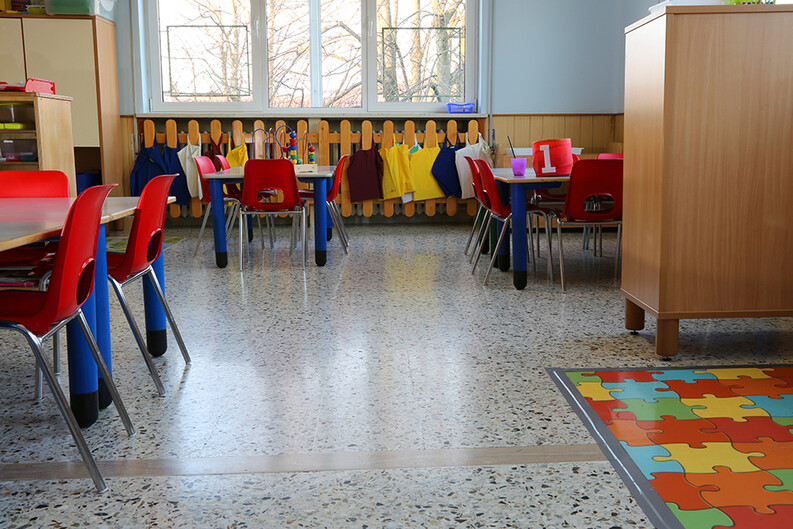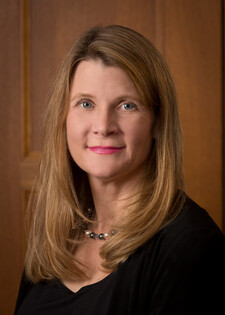Supporting Children and Families Through Law

Anne L. Alstott has taught at Yale Law School since 1997, with a focus on tax and social welfare policy toward children and families. Recently, Alstott helped found a medical-legal partnership for children’s behavioral health with Dr. Linda Mayes, the head of the Yale Child Study Center, and Jay Sicklick, the Deputy Director of the Center for Children’s Advocacy (CCA), which is funded in part by the Oscar M. Ruebhausen Fund at Yale Law School. Additionally, Alstott and other Law School faculty members have collaborated with Mayes and other Child Study Center colleagues in the Project on Child Development and the Law, which considers how the law might improve the mental health of children and parents through enhanced social welfare support and preventing family disruption. The Yale Law Report spoke to Professor Alstott about this work.
Q: How has COVID-19 exacerbated issues that were already impacting children and families? What can be done to address this?

A: The data we have suggests that COVID-19 has been especially hard on children and families. High unemployment and quarantine have left many parents scrambling to meet daily needs, including food, housing, and utility bills. The benefits system, including the unemployment insurance system, can be a lifesaver, but it also has huge gaps that should be addressed. The closure of schools and daycare centers has burdened children’s development, taxed parents’ ability to work, and left many childcare workers unemployed. The disruption has been especially taxing for special needs children and their families. Looking forward, we should recognize that our childcare system is an essential part of our social infrastructure and merits the same kind of care and attention that we devote to K–12 education. The larger public has learned what feminists have long pointed out: childcare isn’t just babysitting, and it isn’t just a luxury. Without good, reliable childcare, parents cannot work, and many jobs in the economy do not get done. Looking ahead, we should think big about improving childcare quality, affordability, and worker pay. Ganesh Sitaraman, a professor at Vanderbilt Law School, and I sketch one approach in our (pre-pandemic!) book, The Public Option (2019).
Q: What is the focus of the Medical-Legal Partnership (MLP) at the Child Study Center?
A: Yale Law School already has close connections to several MLPs, thanks to the Solomon Center for Health Law and Policy, including the Yale New Haven Children’s Hospital MLP, staffed by Alice Rosenthal of the Center for Children’s Advocacy. We were inspired by their work, and as we explored the possibilities, we realized that many Child Study Center patients have a range of legal needs that a MLP could help meet. Education is a particular focus for many families who need assistance in gaining access to special education and accommodations for disabilities. Guardianship and adoption are also important, as are housing and access to benefits. A number of YLS students helped me assess legal needs and think through the issues involved in starting an MLP, including ethical considerations, as part of my Law and Child Development class. It was eye-opening to sit in on clinical rounds and to see the care and expertise that the Child Study Center clinicians bring to their work. It was exciting, too, to see that we had something to contribute: The patients’ legal needs just jumped out at us from the case histories. The Child Study Center clinicians are highly effective in advocating for their patients with schools and other institutions, but when a bureaucracy asserts that it has “no legal duty” to accommodate a child, it can be difficult for the clinicians to move forward. That is the entry point for lawyers to be really helpful. Kathryn Meyer, an experienced CCA lawyer, is now working side by side with clinicians at the Child Study Center to assess and treat patients’ legal needs as part of an integrated, team approach.
Q: Can you tell us about the Project on Child Development and the Law?
A: The Project came about thanks to Dr. Mayes, who reached out to build intellectual bridges to the Law School and other departments in the University. It can be difficult for law professors to engage University colleagues in the sciences because our vocabulary, professional training, and frames of reference are different. Our group, which includes YLS professor Doug NeJaime and UConn School of Law professor Anne Dailey, along with a number of Child Study Center faculty and clinicians, has held two conferences and has produced several written pieces. Most recently, Doug, Anne, and I have written a law review piece titled “The Legal Imperative of Parental Care,” which shows how (and why) family law and social welfare policy should incorporate key insights from developmental science.


